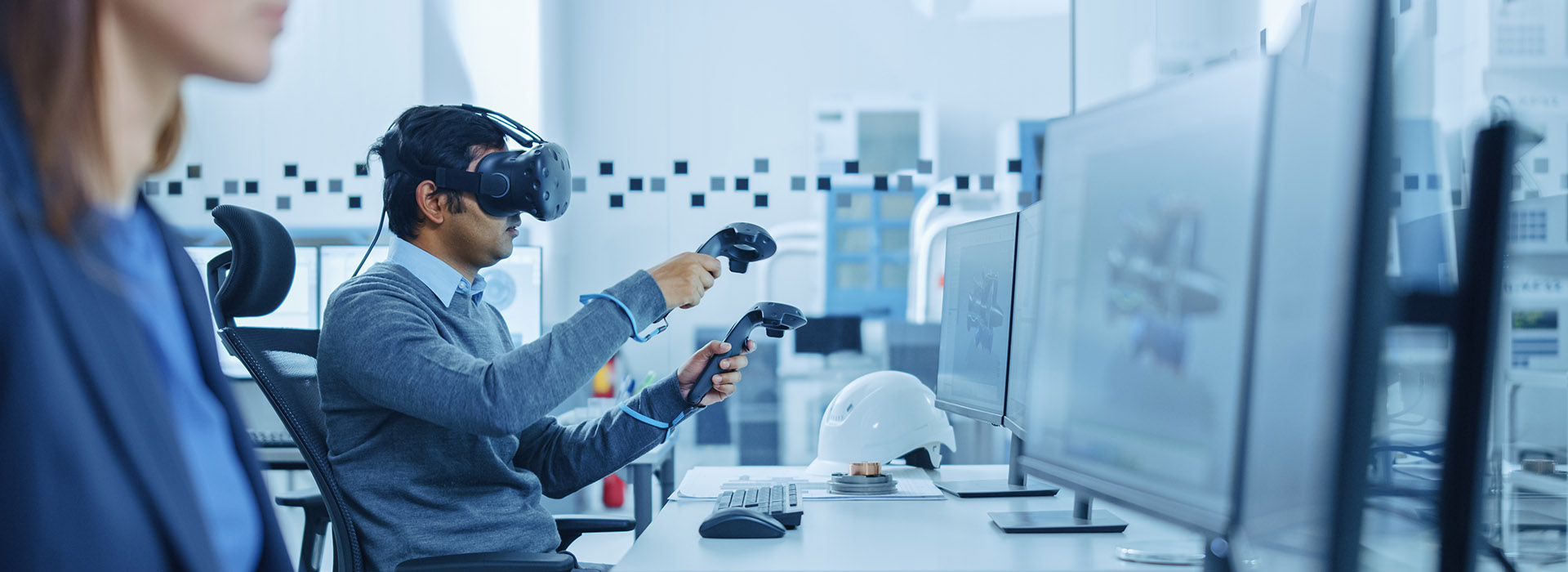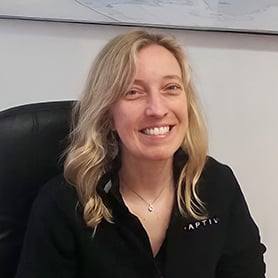Ana Ferreira: Safety Does Not Stop at the End of the Day
Starting her career as an environmental engineer, Ana's safety journey has been progressive. From dealing with safety issues at the epicentre of the pandemic in China to seeing safety first hand in new technologies for autonomous vehicles, she explains how a passion for the environment, a focus on acquiring knowledge, and a deep desire to protect others keeps her motivated.


Ana Ferreira
Global Environment, Health & Safety Director, Aptiv EDS
Q.
What would you say are the attributes you rely on in your current role?
I believe that we can learn from experience, but I'm also a believer that gaining in-depth knowledge on a topic is equally important. Although I have an engineering degree, it was this desire to improve my safety knowledge that encouraged me to take on further studies. I was already working as an engineer with a family to take care of, so perseverance and dedication certainly helped! I also think not being afraid of a challenge helps, particularly as I'm now contributing to improving environmental, health, safety and sustainability across Aptiv's operations in 44 countries with a total of 160,000 employees. My inspiration comes from a deep desire to protect others. For me, it's all about wanting employees to return safe and well to their families after they finish work.
Q.
How does your experience as an environmental engineer help in your health and safety role?
I've always been passionate about the environment, and some years ago I was able to combine it with health and safety. Aptiv's sustainability focus is 'people, product, planet' and 'platform', and my background helps me navigate these frameworks. The environmental standards in some countries can be pretty low, and safety behaviours are often not an essential part of daily working life. So we've worked hard to promote technical standards and improve behaviours based on our corporate requirements for the environment and safety, which are often much stricter than local regulations.
Q.
A global environmental health and safety role inevitably comes up against different cultural attitudes to safety. How do you deal with this?
I focus more on changing cultural attitudes by sharing best practices versus benchmarking countries on environmental and safety performance alone. For example, safety equipment requirements are not always directly linked to the task but can be necessary due to socio-economic circumstances. Ultimately, I have learned not to make assumptions and that by taking the time to understand why something is happening, we will enjoy better safety outcomes.
"If we understand the impact we have on people's lives and communities, it becomes a natural progression to establish a safe working environment."
– Ana Ferreira, Global Environment, Health & Safety Director, Aptiv EDS
Q.
What tools and tactics do you employ to develop a safe working environment?
Our mission as a company is to deliver safer, greener and more connected technologies. If we understand the impact we have on people's lives and communities, it becomes a natural progression to establish a safe working environment. It's about doing the right thing, the right way. Safety training is one way to influence safety behaviours, but the focus should not be on imposing rules; it's about teaching people to understand why safety personally benefits them and their colleagues. We also make sure that safety doesn't discriminate. Machinery and equipment should meet the same standards of safety in every site.
Q.
Aptiv was at the epicentre when the pandemic began. How was your safety programme impacted?
Yes. We had a site operating in Wuhan, China, when the pandemic broke, and everything went into lockdown, except one of our sites that needed to help build ambulances, which meant we had to develop our own protocols to continue working safely. Little was known about the virus, but we continued to question, challenge and assess, which is part of our company DNA.
Q.
How did this knowledge of COVID-19 gained at an early stage help on a global scale, and what's your approach to new emerging risks?
It allowed us to put in place proactive preventative measures that kept our employees safe. We implemented a 'one team' approach involving the leadership team working in close collaboration with multiple key functions and interested parties to ensure we could operate safely. For example: In January, we halted all domestic and international travel throughout the company, and in February, we restricted all non-essential visitors from entering our facilities – not just in Asia – but in every city in which we operate. While these moves surprised some people outside of Aptiv, we did all of this because we never want to put our employees, customers, and the communities in which we operate at risk. In April, we published our Safe Operations Protocols and we were able to use our agility to identify and implement measures critical to safely ramping up our operations. These best-in-class protocols were shared with customers, suppliers, employees and industry trade organisations, so others can benefit. We remain focused on ensuring our protocols are followed every day, in every site, and will apply our learnings and expertise to continue to operate safely during the pandemic now and in the future.
"New technology is increasingly part of our lives, and we need to be willing to deep dive, investigate and work together to create new safety solutions that embrace innovation."
– Ana Ferreira, Global Environment, Health & Safety Director, Aptiv EDS
Q.
How does working for a company that focuses on being greener, safer and more connected influence your role?
When you work for a company that is at the forefront of mobility solutions, safety will always be a top priority. A good example is how research on removing human error from autonomous solutions can vastly improve road safety. So it helps when leadership is already fully aligned with health and safety principles. New technology is increasingly part of our lives, and we need to be willing to deep dive, investigate and work together to create new safety solutions that embrace innovation. Part of my role is the global environment, so ensuring we are dealing with resource needs of our plants and workforce is essential. Technology can help us monitor those needs more effectively.
Q.
What would you say are the most significant enablers for best in class safety protocols?
Robust management routines are essential. We need to ensure consistency, standardisation and compliance on a global scale, and that is only feasible if the management routines in place work at the same level for everyone. There's also the 'look across process' whereby safety issues are shared regularly across all sites. When we know there is a problem with a piece of equipment in one country, we get the relevant safety teams to talk to engineering colleagues to apply solutions in all regions. We also have safety observation tours where we talk to employees in their working environment to understand their daily routines and experiences, passing 'I care' messages. This ensures our safety programmes reflect the reality of working habits. Part of this involves a 'good catch system', which allows everyone to make suggestions on improving environmental and safety issues. We strengthen the process with our annual Sustainability Awards, where we recognise colleagues' achievements in reducing carbon emissions, improving safety programmes, saving water or community involvement. These routines and programmes are vital to achieving top-level environment and safety performance.
Q.
Tell us why you believe engagement at community level is an important safety lever?
Protecting the health and well-being of employees and communities where we operate is our top priority and a responsibility that we take very seriously. Safety does not stop at the end of the working day. Community engagement programmes allow us to develop a more positive culture within the local community of our workforce. This improves morale and encourages greater trust and respect, which ultimately combine to improve safety behaviours. It's enormously satisfying to work with people outside of the company on road safety schemes for children or planting trees to help the environment.
"Protecting the health and well-being of employees and communities where we operate is our top priority. Safety does not stop at the end of the working day."
– Ana Ferreira, Global Environment, Health & Safety Director, Aptiv EDS